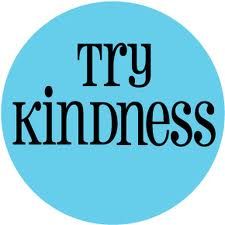Optimism
The Holidays Can Be an Opportunity for Great Hope
Regardless of your religious tradition embrace the season of light and hope.
Posted December 20, 2013

Regardless of your religious tradition (or lack of one) one common denominator as we enter into the heart of the holiday season is the desire for hope. Think about it for a moment. The hopeful theme of light in the darkness is prevalent within the Christmas, Hanukkah (scheduled unusually early this season), Kwanzaa, and other traditions during this time of year. This is no surprise of course, especially in the northern hemisphere, where we are living in the darkest, coldest, and (before modern conveniences like electricity and indoor heat) perhaps scariest time of year. The message seems to be: Within great darkness there is light.

Christmas lights, Hanukkah lights, lighting candles at Kwanzaa, Magi following the North Star, and so many other images of light within great darkness is celebrated and highlighted now. And who doesn’t enjoy the beautiful holiday lights that decorate homes, town centers, shops, businesses, and whole communities? Light in the darkness, hope where there is despair.

Even the more secular celebration of the New Year is a celebration of hope. New Year resolutions are a testament to the hope that things can be better in the New Year. Optimism and hope are powerful motivators and psychology research has well demonstrated that there are many psychological and physical benefits of nurturing these qualities and virtues. Being optimistic and hopeful is associated with better mental health as well as better physical health too. So, regardless of your beliefs and interests (or lack of beliefs and interests) in theological matters consider embracing the optimism and hope that is highlighted in the end of year holiday multicultural and multi-religious celebrations…all of them!

So how can you embrace the hopeful light in the darkness theme? There are many ways to do so but maybe if nothing else, consider listing all of those in your life who help you see light in darkness and hope in despair. This could include those who are close to you such as dear friends and family but also include the people who enter your life as strangers or acquaintances who offer a kind word, a gracious gesture, or a friendly smile. Perhaps taking a moment to be grateful for these folks (even those who you don’t know very well or at all) and to thank them for whatever role they play in your life that gives you a little bit of hope or a slight spring to your step. Psychology research on gratitude supports this exercise too. It will help your (and their) mental and physical health too.

For several years I’ve been haunted by a story of a young woman who decided to kill herself by leaping off the famous San Francisco Golden Gate Bridge. Her story was reported in the press as well as in a documentary film about a year of suicides from that iconic bridge (see the 2006 film, The Bridge, as well as the New Yorker article entitled, Jumpers). Once she decided to kill herself, she reported that if only one stranger offered a kind word, gesture, or look during her public transportation travels to the famous bridge she would abort her plan and choose life. Since no one did offer a friendly word or gesture, she threw herself off the bridge yet miraculously survived the ordeal. A miracle perhaps, since so few people survive that remarkable jump. Her story is a reminder that every kind gesture, every ray of hope offered, every gracious act is important, valuable, and matters..and might matter a lot!. It offers light in darkness, hope in despair. Perhaps this is the take home message we want to embrace as we head into these last few days of the year during prime holiday time. You can be light in darkness, hope in despair for others even for those you don’t even know very well or at all.

So, embrace the optimism, hope, and light of the season. Do it for others but do it for yourself too. Evidence based research and practice well supports these efforts. It will help your mental health (and even physical health) if hope, optimism, gratitute, and compassion are on your holiday table.
Happy Holidays!
So, what do you think?
Copyright 2013 Thomas G. Plante, PhD, ABPP
Check out my web site at www.wcu.edu/tplante and following me on Twitter @ThomasPlante.




